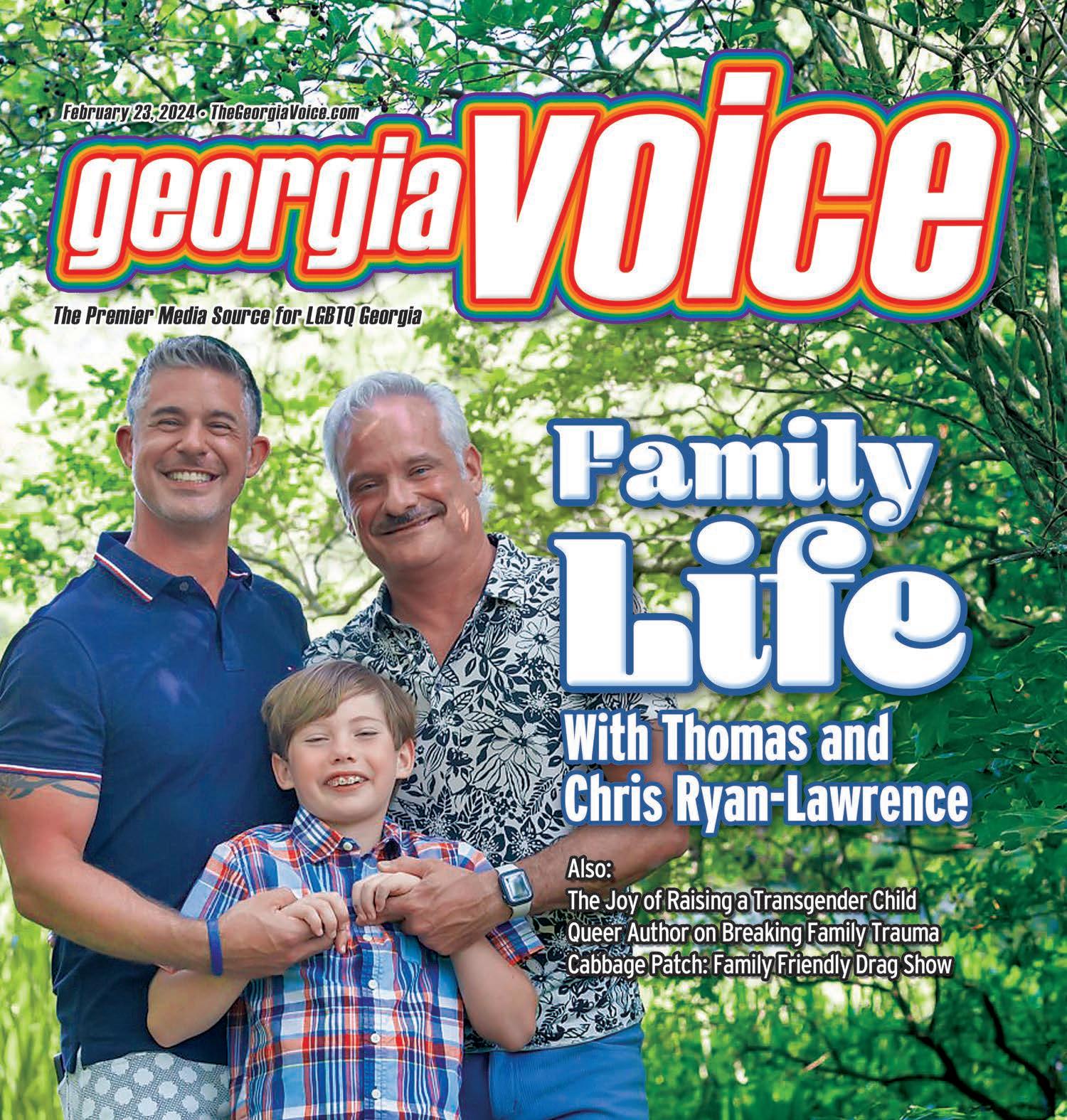

About the cover:
Courtesy photo
TheGeorgiaVoice.com
PO Box 77401 • Atlanta, GA 30357 P: 404-815-6941; F: 404-963-6365
Business Principal/Publisher: Tim Boyd tboyd@thegavoice.com
Editorial Editor: Katie Burkholder kburkholder@thegavoice.com
Editorial Contributors:
Victoria A. Brownworth, Hunter Buchheit, María Helena Dolan, Jim Farmer, Luke Gardner
Production Art Director: Rob Boeger rboeger@thegavoice.com
Sales Sales Executive: Dixon Taylor dtaylor@thegavoice.com
Sales Executive: Jim Brams jbrams@thegavoice.com
Sales Executive & Photographer: Russell Bowen-Youngblood russ@alphabetsoupmarketing.com
Business Advisor: Lynn Pasqualetti
Financial Firm of Record: HLM Financial Group
National Advertising: Rivendell Media • 908-232-2021 sales@rivendellmedia.com
Publisher Emeritus: Chris Cash Fine Print
The Nuances of Family
 Katie Burkholder
Katie Burkholder
“A family can be the bane of one’s existence. A family can also be most of the meaning of one’s existence. I don’t know whether my family is bane or meaning, but they have surely gone away and left a large hole in my heart.”
-Keri Hulme, “The Bone People”
Regardless of your sexuality or identity, family is complicated. In a culture that values family above all else, especially in the South, divorce, generational trauma, addiction, and abuse permeate the family unit. Even if you haven’t been capital-T traumatized by your family, your parents may pressure you to be something you’re not, fail to express their pride, love, and affection openly, or just generally hurt you. On the flip side, your family may be the source of some of your closest relationships and deepest loves. Sometimes, they’re both at the same time.
Unsolicited
Postmaster:




Nobody recognizes the potential pain of family, and the importance of chosen family, more than queer people. In a society organized around the nuclear family, the relationships that exist beyond those boundaries often get overlooked — despite arguably being more common than families containing two straight, married parents and their children. The unfortunate truth about family, for queer people and otherwise, is that it can often be a source of pain and rejection instead of acceptance and love, and even if you find your chosen family to heal that pain, those wounds still exist — especially for the queer children who haven’t yet left the home they were born into, who haven’t had the chance to find their chosen families.
LGBTQ youth are vulnerable already, with legislative attacks being lodged against them at an unprecedented rate. Without a supportive family, that vulnerability only deepens. Our families are the first people we know, and unfortunately for many, they’re the first people to hurt us.
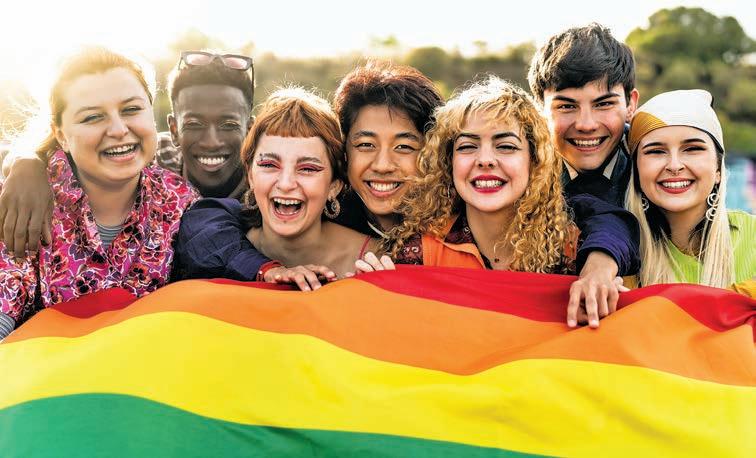 PHOTO BY SHUTTERSTOCK.COM/ALESSANDROBIASCIOLI
PHOTO BY SHUTTERSTOCK.COM/ALESSANDROBIASCIOLI
“LGBTQ youth are vulnerable already, with legislative attacks being lodged against them at an unprecedented rate. Without a supportive family, that vulnerability only deepens. Our families are the first people we know, and unfortunately for many, they’re the first people to hurt us.”
As a young person, coming out to your family can be the most difficult part of navigating your sexuality. According to the Human Rights Campaign’s 2023 LGBTQ Youth Report, a large majority of queer youth — 82.7 percent — are out to at least one member of their immediate family. However, only 26.4 percent are out to every member of their immediate family, and 17.3 percent aren’t out to any of them.
These numbers are worse for trans youth. Only 67.4 percent are out to at least one member of their family and 32.5 percent are out to none of them. Less than a quarter of trans youth always express their gender identity at home. Three out of 10 reported that their family always uses their chosen names and one in seven, their correct pronouns.
In a world growing increasingly hostile toward the trans community — particularly youth — this is unsurprising. If your family does not respect your pronouns, for
example, that can run the risk of increasing mental health issues trans kids already experience at higher rates. Fully 65.5 percent of transgender youth whose families never referr to them with correct pronouns screen positive for depression and 72.1 percent for anxiety, compared to 49.6 percent and 61.9 percent, respectively, of trans youth whose families always do.
In this issue, we’re exploring the nuances of family: how generational trauma manifests and how to overcome it, how familial rejection leads to homelessness and how institutional parenting can be a solution, and how we can look beyond the pain of what family often means to LGBTQ people by showcasing what positive, supportive queer family looks like. Through this exploration, we hope to reveal the truth about family — that it’s more than the blood we share, it’s the unconditional love that binds us to one another — and imagine a future where “family” is only a positive word.
EDITORIAL
All material in Georgia Voice is protected by federal copyright law and may not be reproduced without the written consent of Georgia Voice. The sexual orientation of advertisers, photographers, writers and cartoonists published herein is neither inferred nor implied. The appearance of names or pictorial representation does not necessarily indicate the sexual orientation of that person or persons. We also do not accept responsibility for claims made by advertisers.
editorial material is accepted by Georgia Voice,
we do not take responsibility for its return. The editors reserve the right to accept, reject, or edit any submission. Guidelines for freelance contributors are available upon request. A single copy of Georgia Voice is available from authorized distribution points. Multiple copies are available from Georgia Voice office only. Call for rates. If you are unable to reach a convenient free distribution point, you may receive a 24-issue mailed subscription for $149 per year. Checks or credit card orders can be sent to Tim Boyd, tboyd@thegavoice.com
but
Send address changes to Georgia Voice, PO Box 77401, Atlanta, GA 30357. Georgia Voice is published twice a month by Georgia Voice, LLC. Individual subscriptions are $149 per year for 24 issues. Postage paid at Atlanta, GA, and additional mailing offices. The editorial positions of Georgia Voice are expressed in editorials and in editor’s notes. Other opinions are those of the writers and do not necessarily represent the opinion of Georgia Voice and its staff. To submit a letter or commentary: Letters should be fewer than 400 words and commentary, for web or print, should be fewer than 750 words. Submissions may be edited for content and length, and must include a name, address, and phone number for verification. Email submissions to editor@thegavoice.com or mail to the address above. Join us online: facebook.com/thegavoice twitter.com/thegavoice instagram.com/thegeorgiavoice youtube.com/user/GAVoice georgiavoice VOLUME 14• ISSUE 23
THEGEORGIAVOICE.COM FEBRUARY 23, 2024 EDITORIAL 3
National Trans Survey Reveals Overwhelming Increase in Life Satisfaction After Transitioning
Katie Burkholder
The National Center for Transgender Equality has released its 2022 U.S. Transgender Survey, with findings that suggest that, despite workplace and medical discrimination, trans people overwhelmingly experience more life satisfaction after transitioning.
Early insights from the survey – the largest of its kind, sampling responses from over 90,000 participants – reveal that 94 percent of trans people were more satisfied with their lives after transitioning: 79 percent “a lot more” and 15 percent “a little more.” The numbers are even higher for those who received gender-affirming treatment: 98 percent of those currently receiving hormone treatment were more satisfied and 97 percent of those who underwent at least one form of gender-affirming surgery were, as well.
“That might seem obvious to some of us that of course if you’re transgender and you need transition-related health care, of course your life is better off when you get that health care,” NCTE Executive Director Rodrigo Heng-Lehtinen said at a news conference. “But it’s really important to have actually asked people and found out objectively what is their experience, because transition-related health care is otherwise so under attack in state legislatures around the country.”
These statistics counter narratives propagated by mainstream media sources like The New York Times, which published an op-ed titled “As Kids, They Thought They Were Trans. They No Longer Do” earlier this month, that suggest trans people regret transitioning. Of course, the data reveal that life satisfaction does dip after transitioning for a small portion of the community, but this is rare: only three percent of respondents reported lower satisfaction rates after transitioning.
“There’s still a drought of information available to lawmakers, the media, and advocates regarding our experiences and our needs,” Heng-Lehtinen
 PHOTO BY SHUTTERSTOCK.COM/ CUNAPLUS
PHOTO BY SHUTTERSTOCK.COM/ CUNAPLUS
“Early insights from the survey – the largest of its kind, sampling responses from over 90,000 participants – reveal that 94 percent of trans people were more satisfied with their lives after transitioning: 79 percent ‘a lot more’ and 15 percent ‘a little more.’”
said. “At best, we’re working in a vacuum of information. At worst, we’re combating dangerous misinformation being spread by anti-trans extremists. Without question, the misinformation and lack of understanding [are] underpinning these escalating legislative attacks against our community.”
The study also found that 34 percent of the respondents were experiencing poverty at the time of the survey, and 18 percent were unemployed. These numbers are vastly higher compared to the official 2022 U.S. poverty rate of 11.5 percent and unemployment rate of 3.5 percent. Thirty percent also reported experiencing homelessness in their lifetimes.
According to the survey, 11 percent of respondents who had ever been employed reported losing their jobs, being fired, being forced to resign, or being laid off because of their gender identity or expression.
Negative experiences for trans people extended beyond the workplace. Of the adult respondents who had seen health care providers in the last year, 48 percent had at least one negative experience because they were transgender. Eighty percent of those who were out or perceived as trans in K-12 experienced at least one form of mistreatment, including verbal harassment, physical abuse, and cyberbullying.
These stats come amid a years-long legislative attack on the transgender community. In 2024 alone, 467 anti-trans bills have been introduced in 41 states, which is influencing some trans people to move from their home states. According to the survey, Georgia was among the top 10 states where transgender respondents most often reported moving from, along with Alabama, Arizona, Florida, Missouri, North Carolina, Ohio, Tennessee, Texas, and Virginia.
Luckily, most trans people are supported at home, with 67 percent reporting that their immediate families were either supportive or very supportive.
4 NEWS FEBRUARY 23, 2024 THEGEORGIAVOICE.COM NEWS


New Map Shows Which States Are Least Safe for LGBTQ People
Victoria A. Brownworth, Philadelphia Gay News via the National LGBTQ Media Association
Read the full story online at thegavoice.com.
The Movement Advancement Project (MAP) has created an interactive map to show which states in the U.S. are the safest for LGBTQ people to live and work. MAP also tracked those with declining levels of safety.
MAP has tracked LGBTQ laws and policies across the country and tracks over 50 different LGBTQ-related laws and policies. This new interactive map shows the overall policy tallies (as distinct from sexual orientation or gender identity tallies) for each state, Washington, D.C. and the five populated U.S. territories — Puerto Rico, Guam, American Samoa, the U.S. Virgin Islands and the Commonwealth of the Northern Mariana Islands.
A state’s policy tally scores the laws and policies within each state that shape LGBTQ people’s lives, experiences and equality. The major categories of laws covered by the policy tally include: Relationship & Parental

Recognition; Nondiscrimination; Religious Exemptions; LGBTQ Youth; Health Care; Criminal Justice; and Identity Documents.
MAP scored each state based on those laws and policies: the higher the score, the more protective that state’s or territory’s laws are with regard to LGBTQ people. The lower the score a state receives, the more harmful its policies are towards LGBTQ people.
There are five categories: high, medium, fair, low and negative.
States must score between 75 percent to 100 percent of possible points to end up in the high category, between 50 percent to 74.9 percent for the medium category, between 25 percent to 49.9 percent for the fair category, 0 to 24.9 percent for the low category, and less than zero to be placed in the negative category.
MAP states, “These scores are an excellent measure of the current LGBTQ policy landscape across a wide range of issues, but the scores do not necessarily reflect the entire political or social landscape for LGBTQ people.”
MAP emphasized that their map reflects existing laws and policies that are already in place and does not include bills currently under consideration by state legislatures. MAP also doesn’t categorize enforcement of existing laws. The tally also does not reflect the social climate in a state, the efforts of advocates, and/or opportunities for future change.
According to the organization’s research, 44 percent of the overall LGBTQ population live in states with high scores, four percent of the LGBTQ population lives in states with medium overall policy tallies, nine percent of the LGBTQ population lives in states with fair overall policy tallies, 16 percent of the LGBTQ population lives in states with low overall policy tallies and 27 percent of LGBTQ population lives in states with negative overall policy tallies — which means more than half of LGBTQ Americans live in places that have poor policy tallies.
Recap: Men Having Babies Conference is This Weekend
Katie Burkholder
Are you a gay man looking to start your own family? Men Having Babies comes to Atlanta this weekend, February 23-25, for their Surrogacy Conference and Expo.
The conference, which is trans-inclusive, will provide attendees with the opportunity to interact with over 20 reputable gay-friendly agencies, clinics, law firms, and other surrogacy providers and learn about the basics of surrogacy, costs, how to access benefits from employers, and more. Events and topics covered include Choosing Your Surrogacy Destination,
Legal Considerations, a Single Fathers Lunch Workshop, Surrogacy Costs, Finding Your Egg Donor, a Personal Stories Panel, and the Gay Parenting Expo – along with so much more.
“A big part of it is the expo where you get to meet people face-to-face who could enable you to go on your journey,” Sherman Taylor, the Board Chairman for MHB, told Georgia Voice. “We have workshops to break down the various aspects of it: the medical aspects, the psychological aspects, the insurance, financing, budgeting. You get to hear perspectives from parents and even from children born through the process. And then
we also bring in research and advocacy; we have an advocacy and research forum that allows people to learn about what’s going on in the broader world and what the key areas are that can impact our ability to achieve the mission and support people in the journey.”
They will also have the opportunity to network and connect with other gay parents.
Proceeds from conference registrations will benefit MHB’s Gay Parenting Assistance Program, which offers financial assistance to parents in two stages. Stage one offers smaller cost reductions, a benefit that “dozens of
parents per year” claim, according to Taylor. Stage two offers a more significant reduction for parents who would not be able to afford their child otherwise.
The conference opens at the National Center for Civil and Human Rights, where attendees will be able to explore the exhibits — including the new “Queer Justice” exhibit chronicling Lambda Legal’s 50-year history — and will continue at the Omni Atlanta at CNN Center. Check in on Friday begins at 4:30pm. Registration is $40 per person, includes meals and receptions, and is open to nongay parents as well. Register at menhavingbabies.org.
NEWS
THEGEORGIAVOICE.COM FEBRUARY 23, 2024 NEWS 7


Read these stories and more online at thegavoice.com
GOP, Fox News Falsely Claim Megachurch Shooter is Trans
On February 11, a child and a man were wounded and a woman was killed after the woman opened fire at evangelist leader Joel Osteen’s Lakewood Church in Houston. Osteen said the shooting happened between services as people were arriving for Sunday’s Spanish service.
Houston police identified the suspect in the shooting as Genesse Ivonne Moreno, 36. Moreno entered the church with her seven-year-old son wearing a trench coat and carrying a rifle and a backpack she claimed held a bomb. Moreno began firing in a hallway outside the sanctuary of the church, but did not reach the main sanctuary. She was killed by two off-duty officers who opened fire. One officer has been identified as an agent with the Texas Alcoholic Beverage Commission, and the other is a Houston police officer, according to Police Chief Troy Finner, who gave a press conference on the shooting late Sunday. It is still unclear who shot Moreno’s son, who remains in critical condition after being shot in the head.
A dispute between Moreno and her exhusband’s family, some of whom are Jewish, appears to be related to the shooting, Houston Police Commander Chris Hassig said in a news briefing Monday. The shooter also made several statements during the course of the incident, but law enforcement has declined to release those details.
The shooting made national headlines because the Lakewood Church is the largest in the U.S. with services for thousands each Sunday and Osteen is a world-renowned evangelical pastor. But as soon as the shooter’s troubled history of mental illness and criminal acts surfaced, Fox News, Rep. Marjorie Taylor Greene and several large MAGA GOP accounts on Twitter/X began claiming Moreno was transgender, an assertion for which there is no evidence. Law enforcement officials said Moreno previously went by multiple aliases, including using both male and female names, but said there is no evidence she was transgender.
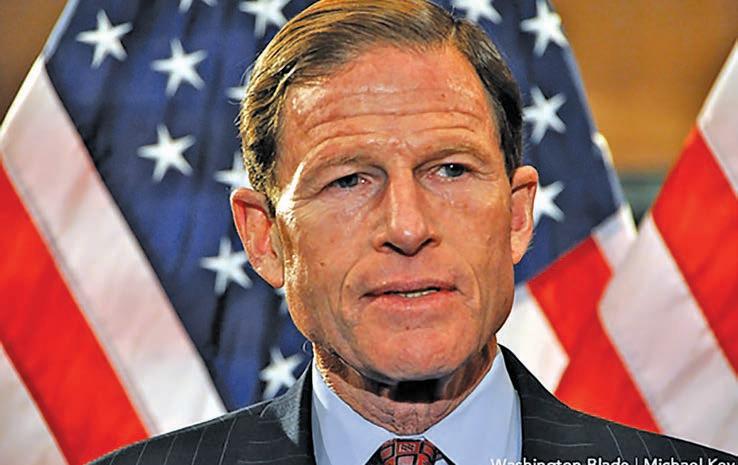
As late as Wednesday, Fox News was still claiming in headlined stories that Moreno was trans, stating in one story’s kicker below the headline: “Transgender Texas megachurch shooter displayed swastikas, regularly harassed residents while wielding rifle, neighbors say.”
Fox News, Greene, and others were eager to tag Moreno as a leftist and trans, without evidence.
What is true of Moreno is that she was in a sometimes-violent custody battle with her ex-husband for their son — the boy who was shot at Lakewood Church. Moreno’s ex-mother-in-law, Rabbi Walli Carranza, accused Moreno and Moreno’s mother of keeping Moreno’s child away from the father in 2022 divorce and custody proceedings.
During the 2022 divorce proceedings, Moreno’s ex-mother-in-law also petitioned to become the managing conservator of the child. Rabbi Carranza claimed Moreno has a diagnosis of schizophrenia and Munchausen by proxy, had been investigated by Child Protective Services four times, and was found to have harmed her child twice. Carranza alleged Moreno pointed a gun at her exhusband and stored an unlocked handgun in her son’s diaper bag.
LGBTQ Groups Drop Opposition to Kids Online Safety Act
Following changes spearheaded by one of the bill’s sponsors, U.S. Sen. Richard Blumenthal (D-Conn.), a coalition of seven LGBTQ advocacy groups dropped their opposition to the Kids Online Safety Act.
GLAAD, GLSEN, Human Rights Campaign, PFLAG National, National
Center for Lesbian Rights, National Center for Transgender Equality and the Trevor Project were the signatories.
KOSA would be the strongest piece of big tech regulation passed in decades, imposing a duty of care for social media companies to prevent their products from harming children along with guardrails around their use of features that could worsen depression, bullying, sexual exploitation, eating disorders and other harms.
Prior to the latest iteration, however, advocates warned the duty of care, coupled with the deputization of enforcement powers to state attorneys general, might facilitate abuses like the suppression of affirming online content sought by LGBTQ youth.
However, “under the new bill text, the duty of care is clarified to focus specifically on the product design features and components that are used to keep kids hooked on their platforms, often to the detriment of the mental health and wellbeing of kids,” a spokesperson for Blumenthal’s office said.
This applies to “the business model and practices of social media companies, rather than the content that is hosted on their platforms,” they said, covering “features like personalized recommendation systems, nudges, and appearance altering filters” that have been shown to harm young people.
The LGBTQ groups wrote that these changes to KOSA collectively “mitigate the risk of it being misused to suppress LGBTQ+ resources or stifle young people’s access to online communities,” and therefore “if this draft of the bill moves forward, our organizations will not oppose its passage.”
8 NEWS FEBRUARY 23, 2024 THEGEORGIAVOICE.COM
reports
Staff
NEWS BRIEFS
U.S. Sen. Richard Blumenthal (D-Conn.) PHOTO BY WASHINGTON BLADE/MICHAEL KEY

When Family Turns Its Back on You
A look at LGBTQ youth homelessness
Katie Burkholder
Read the full story online at thegavoice.com.
According to the Trevor Project’s “Homelessness and Housing Instability Among LGBTQ Youth” report, 28 percent of LGBTQ youth have experienced homelessness or housing instability at some point in their lives. Compared to the estimated 14 percent of Americans who have experienced homelessness in their lifetimes, queer young people are overwhelmingly more likely to be kicked out of their homes and left with no other options, often disowned for their sexuality or gender identity. The same goes for foster care: LGBTQ youth are overrepresented, with 30 percent of youth in the foster system identifying as LGBTQ.
“I was told that foster families didn’t want a gay kid in their home, so I grew up in group homes and residential centers where I was abused sexually, physically, and emotionally,” Kristopher Sharp, a queer young person who spent eight years in foster care, told the Human Rights Campaign for their “LGBTQ Youth in the Foster Care System” report.
For these kids, homelessness can be the expected outcome of aging out of the foster care system – and what they need to thrive in the way they deserve is a lot more than just a place to sleep. These kids need somebody to listen to them, accept them as they are, and help teach them the basic life skills their guardians neglected to teach. What they need is a parent.
LNFY serves as a family for kids who need one. The organization operates from a place of empathy to treat young adults ages 18 to 25 with the respect and support necessary for them to blossom into self-reliant and successful adults.

“Every one of them is unique,” Melanea Alvarez, the Executive Director of Lost-NFound Youth, told Georgia Voice. “Everyone needs something a little different. Maybe some are very aware of what they need, but they just don’t know what resources are available. We have an entire resource guide that we’ve developed inside the drop-in center.”
The drop-in center offers more than just resources: they offer case management and intake for those who need longer-term care; services like showers, lunch, clothing, and employment aid; as well as regularly scheduled events like a psychotherapy group, a faith group, HIV testing and education, and more.
Depending on the level of need, there are sevenday and 90-day housing programs with room for up to 16 people. Each program includes case management, and there are three different 30-day phases within the 90-day program. Phase one includes creating a 30-day spending tracker, budgeting 40 percent of spending, and completing a career assessment worksheet. Phased two includes creating a transition plan, completing 10 apartment searches, completing two education/career exploration worksheets, and budgeting savings. Phase three includes
budgeting 100 percent of spending, completing 20 apartment searches, and completing the transition plan. Along with these tasks, residents also complete chores to learn the life skills necessary to live on their own.
“The parents, whenever they start to sense that there’s something different and because you’re labeled as being different, they just don’t want to focus on you,” Alvarez said. “So, think about life skills: think about things that are as simple as preparing a meal, using the microwave, it could be doing laundry, think about chores around the house, washing dishes, mopping a floor, all those kinds of things that we just take for granted because we have been taught… We assign them chores, and we actually demonstrate to them the things that they need to do and why it’s responsible. You get that feeling of being not in an institution or a shelter, but you’re surrounded by people like you and you’re in a safe space.”
Of course, one necessity for ending the cycle of homelessness for anyone is securing employment – which is hard enough as it is but made even more difficult when you don’t even know how to start. Alvarez said she sees some young people who “don’t know the first
thing about what to do to search for a job.” That’s where the Job Readiness Program comes in, which teaches employment skills like customer service, problem-solving, punctuality, attendance, accountability, teamwork, sales, and communication. When they complete the program, in which they are paid hourly and may work up to 24 hours a week, they will be connected to a Job Readiness and Development Program Partner for future employment. They also have the opportunity to work in LNFY’s thrift store, which five people are doing now.
Support doesn’t end when the 90 days are up; there are aftercare programs with follow-up case management anywhere from one month to a year after their stay. Alvarez says former residents often return to volunteer and connect with the current residents, and five former residents even work at the LNFY thrift store.
LNFY’s overarching and diverse mechanisms of support boost their youth up into strong, independent, and loved individuals, ready to take on the adult world.
To learn more about and support Lost-NFound Youth, visit lnfy.org.
Representatives of Lost-N-Found Youth at Atlanta Pride 2023
COMMUNITY 10 COMMUNITY FEBRUARY 23, 2024 THEGEORGIAVOICE.COM
PHOTO VIA FACEBOOK
The Joy of Raising a Trans Child
Katie Burkholder
Not even two full months into the year, 462 anti-trans bills have been introduced across the country. Six have been introduced in Georgia, four of which impact young people: HB1045, which would require schools to give notice and receive consent before providing students with sexual orientation or gender identity instruction; HB836 and HB939, both of which would require multiple occupancy restrooms and changing areas in elementary and secondary public schools to be “designated for exclusive use by males or females”; and SB438, which would require public schools to operate separate sports teams for “members of each gender.”
These stats paint a bleak picture of the realities of being or raising a trans child, but the truth is much more hopeful, at least according to Jennifer Slipakoff. Slipakoff is raising a trans daughter and has been for more than a decade.
Slipakoff’s 16-year-old daughter, whom she requested remain unnamed for her safety, began her transition at the age of four.
“Her transition was very organic; it started just really simply as being interested in girls’ clothes, girls’ toys,” she told Georgia Voice. “We have a son who is a couple of years older than my daughter, so we always had boys’ toys in the house. But we noticed that our daughter was playing with them in a very different way than the way that our son was playing with them … She started wearing girls’ clothes in kindergarten, so that’s when her social transition began. We got her name legally changed, and she’s just been being who she is ever since.”
Back when she was first transitioning, around 2012, the landscape for navigating trans issues was much different from now. Slipakoff says there weren’t many resources to turn to, and she and her husband were simply trying their best to make sure their daughter knew she was loved.
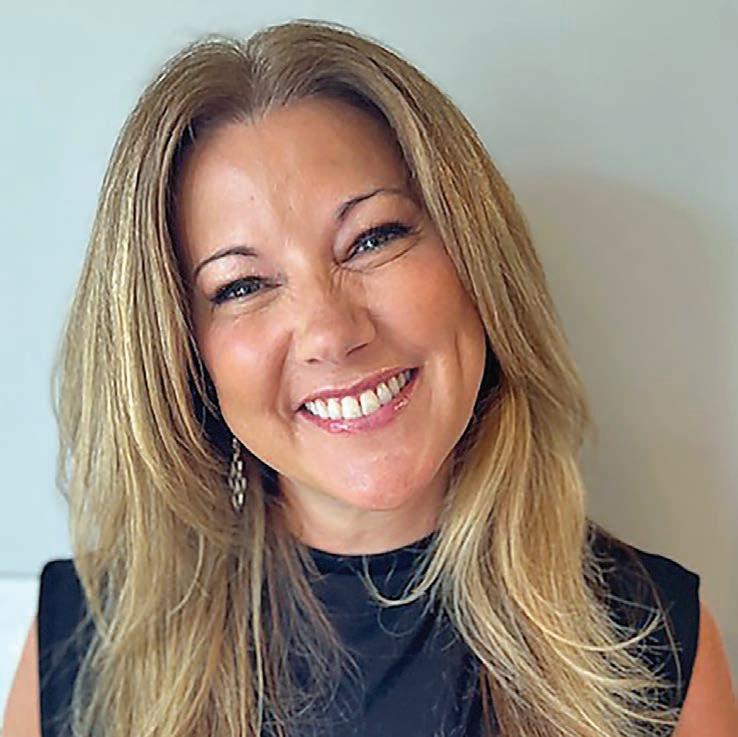
“We wanted to make sure that we were supporting her in the best possible way and making sure that she felt like she could be who she was and that we would unconditionally love her,” she said. “We were kind of stumbling around in the dark, trying to figure out how we manage these conversations with school, how we manage them with family, how we manage them with friends, and we just tried to do our best and just make sure that she felt loved and taken care of and supported.”
In the early days, Slipakoff and her husband worked to educate themselves and the people around them to create a safe and positive space for their daughter, both in and out of the home. She says her daughter has a supportive school community and the support has allowed her to flourish.
“She’s really confident,” Slipakoff said. “She knows that she’s fully supported.”
However, being a trans young person, even when supported by your family and community, is not without its challenges.
“The problem comes with sports,” Slipakoff said. “The Georgia High School Association ruled last year that trans kids can’t play on the appropriate sports team that aligns with their gender, so she’s been unable to play certain sports and that has been really difficult. It’s impacted her in a really negative way, so we’re working through that.”
Slipakoff said she “naively” expected things to only get better for trans kids in the years since her daughter’s transition, but with the recent onslaught of anti-trans and anti-LGBTQ laws
“We’re a happy family. My daughter is a happy kiddo. We love her. We celebrate her. We’re not doing these things in spite of who she is, we’re doing these things because of exactly who she is.”
— Jennifer Slipakoff
being introduced in growing numbers across the country and state, that is unfortunately not the case. She protects her daughter as best she can — and herself, by refusing to read the comments on any LGBTQ news piece, especially those concerning children.
Despite these hardships and how the far right portrays trans children, raising a trans child is not an awful or difficult experience, nor is her daughter a depressed, struggling child. Overall, it’s an overwhelmingly joyful experience.
“We’re a happy family,” Slipakoff said. “My daughter is a happy kiddo. We love her. We celebrate her. We’re not doing these things in spite of who she is, we’re doing these things because of exactly who she is. It’s important to celebrate your kids, especially when they're choosing to show up authentically or when they’re not able to show up authentically because of their safety.”
Slipakoff’s family is a testament to how life-affirming support, acceptance, and unconditional love are for trans kids, and how believing and trusting in your child can set them up for success.
“Follow your kiddo’s lead,” she said. “They know what’s best for them, they really do … The world offers us so many obstacles, why would you want to be one of them for your kid?”
THEGEORGIAVOICE.COM FEBRUARY 23, 2024 COMMUNITY 11
COMMUNITY
Jennifer Slipakoff has been raising a trans daughter for more than a decade. COURTESY PHOTO
To Be Loved: A Conversation with Dr. Frank Anderson
Hunter Buchheit
For every queer person, coming out is a process. There is no one-and-done conversation that renders a queer person fully formed or comfortable, no singular reveal that instantly erases the internalized trauma that follows coming to terms with their identity.
For Dr. Frank Anderson, a Harvard-educated psychiatrist and psychotherapist, processing his queerness, coming out, and reconciling his relationships with those around him and with himself has also been a years-long process, one that he’s captured in his recent memoir, To Be Loved: A Story of Truth, Trauma, and Transformation.
Dr. Anderson specializes in trauma, treating clients — many of whom are queer — grappling with the emotional hardships of their youth and analyzing the way that trauma manifests itself into long-term patterns of behavior. One of his primary focuses is the field of Internal Family Systems (IFS) therapy, a framework for tackling deeprooted psychological wounds wrought by the pressures of society and the experiences of his patients’ upbringings. The IFS model — a form of talk therapy especially useful for those inherently traumatized because they belong to marginalized communities — identifies and aims to understand the subpersonalities within people. The model uses the “eight Cs” — confidence, calm, compassion courage, creativity, clarity, curiosity, and connectedness — to balance the conflicts within these personalities brought about by different forms of trauma. As the vice chair for the Foundation of Self Leadership and with a plethora of ondemand resources and workshops accessible to nonpatients, Dr. Anderson aims to help people come to terms with their identities the same way he has his own.

I sat down with Dr. Anderson to discuss “To Be Loved,” his inclination toward psychiatry, and how his own experiences growing up in an unaccepting household and being forced into six years of conversion therapy have shaped him, his career, and his goal of using his memoir to show that the trauma cycle can be broken.
Read the full interview online at thegavoice.com.
What brought you to the field of psychiatry and practices like IFS therapy?
Interestingly, what brought me to the field of psychiatry was a family member who had an acute psychotic episode when they were a teenager. It was somebody who I was very close with, and it rocked my world. I saw pain, and it affected me so deeply. I didn’t realize at the time it was actually tapping into my own trauma history. I was going to be a pharmacist, and it pushed me to switch
to pre-med to become a doctor. I was like, “I have to save somebody like that.” This person had another psychotic episode and went missing. For a couple days, I arranged a search party to find them. That’s when I realized I had to be a psychiatrist. I soon realized, “Oh, crap, this isn’t really about my close family member. This is about me.” I’d suppressed so much of myself growing up.
When I was six years old, my parents caught me playing with the Barbie doll in the back of my cousin’s basement. And they thought that was bad and wrong. They yelled at me, and they sent me to a form of conversion therapy for six years. It brainwashed me to suppress my thoughts, suppress my impulses, suppress my desires, and be a “normal boy.”
What inspired you to sit down and write your memoir?
I never thought of myself as a memoir writer,
I can tell you that. After two academic books, my publisher said, “Hey, let’s work on the next project.” I was like, “I need to read, I need a break.” And they brought up how I always talk about my trauma history in my work and how I should write a memoir.
Writing it was an incredible process. I would get up at three or four o’clock in the morning and be compelled to write for months at a time. The material just flowed through me. And so much healing happened through the process of writing. I actually just started a course with a colleague and friend of mine just to teach people how therapeutic the writing process can be, because it certainly was for me.
For your queer readers specifically, what do you want them to get out of your memoir?
I don’t think people are aware that anybody who grows up queer in this culture — even today’s culture — has shame and trauma attached to being in this world. There are so many negative messages in culture and society, even if you grew up in a supportive family. You’re wrong, you’re bad, you’re no good. I really believe that trauma is inherent in every queer person. When I was a kid, being queer was thought of as a mental disorder. That’s no longer the case. But today, being queer is hard in a very different way. Suicide rates are off the charts, mental health issues are huge. So even in a more accepting environment, it’s important to acknowledge the inherent, internalized homophobia that we grow up with. I want people to know we all have trauma, and maybe your form isn’t the exact same as mine, but you have it, too. And I want people to know that you can heal from it.
“To Be Loved: A Story of Truth, Trauma, and Transformation” is available for preorder through Charis Books at charisbooksandmore.com.
12 COMMUNITY FEBRUARY 23, 2024 THEGEORGIAVOICE.COM
COMMUNITY
Dr. Frank Anderson, a Harvard-educated psychiatrist and psychotherapist. Inset: Anderson’s book, To Be Loved, a story of truth, trauma, and transformation. COURTESY PHOTOS






ATLANTAOPERA.ORG | 404-881-8885 A Midsummer Night’s Dream Benjamin Britten Mar 2 - 10 Cobb Energy Performing Arts Centre 2023-24 SEASON 25% OFF WITH CODE PRIDE25 TUESDAY, MARCH 5 AT 7:30PM Not valid on previously purchased tickets. PRIDE NIGHTS ARE BACK!
Family Life with Thomas and Chris Ryan-Lawrence
From their first date together, Thomas and Chris Ryan-Lawrence knew they wanted to have kids. The two working fathers balance successful careers with raising their now 10-year-old son Noah, and they do it with humor and grace. Thomas and Chris sat down with Georgia Voice to talk about their parenting journey and reflect on the past decade of fatherhood.
Quotes have been edited for clarity. Read the full article online at thegavoice.com.
You had your son in 2014. How long did it take from deciding to have a kid to that point, and how did you decide it was the right time?
T: As far as the right time, I will say there is no right time. We decided it was something we wanted to move forward on after our wedding, because we didn’t know how long it would take. We really got to explore every option: foster care, domestic adoption, foreign adoption, surrogacy, and we had narrowed it down to two. We either wanted to adopt domestically, because at that time any foreign adoption would have required us to lie [about our sexuality], or we were going to use my sperm, Chris’s sister’s egg, and then a gestational surrogate carrier. We found a doctor’s office and went in for a consult. We both walked out just with the exact same feeling: this isn’t how we’re meant to do this. So, we settled on domestic adoption and from there started the process of finding the right agency and all of that. As far as getting approved to the time our son was born in our hands, it was right at 18 months.
C: Thomas put a very positive spin on the
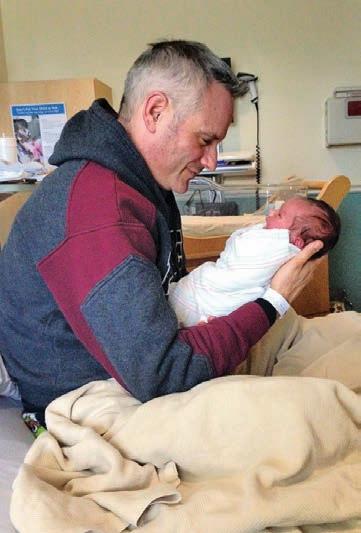
fact of how fast everything went. Have you ever done speed dating? It’s very much the same thing. We got scammed a couple of times. I would never not encourage anyone to start building a family, but from a sense of reality, you’ve got to know that you're in for a lot of bumps and a lot of joy and a lot of heartache and a lot of enthusiasm.
What have the last ten years been like with your son?
T: You’re shaping a little person in a world that is increasingly more negative, a world that's increasingly more divided. To teach compassion, love, joy, and manners, it’s tough.
C: We have to accept that this little person’s brain is going to continue to keep developing until he’s 25. He’s funny. He’s smart as a
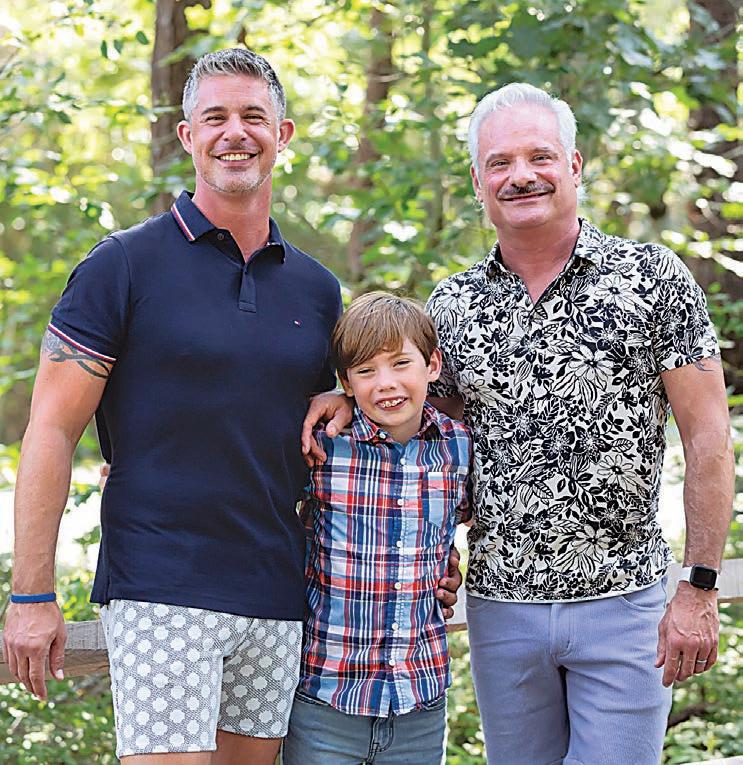
whip. Sarcastic as hell. He gets that from both parents. He is, you know, very athletic. He loves to swim. We’ve shed more tears in the journey of becoming parents and being parents than I think we have in just about any other parts of our lives.
T: Noah goes to a private school, and we were there for Field Day in second grade, and this kid looks at me and he’s like,” So, you’re Noah’s dad” and then looks at Chris and is like, “You’re Noah’s other dad.” And then he asks, “Are y’all married?” Keep in mind this was right as Don’t Say Gay passed in Florida. My only savior in that moment was Noah’s teacher, who is an openly gay man, and he said, “I don’t know why you’re acting surprised. We’ve talked about this in class. A boy can marry a boy. A girl can marry a girl. There are some people who don’t identify as either. Why are you acting shocked?”
All that ran through my head was what if I was in a public school right now? What most people don’t realize about the Don’t Say Gay law is that it’s not just about LGBTQ students. It encapsulates kids of LGBTQ families.
Do you have any advice for LGBTQ parents?
C: Be committed, because no matter which
angle you take, there are going to be lots of bumps in the road. Go until something doesn’t feel right, like we did when we were standing in the parking deck with the IVF. Go with your gut. It’s not about the destination, it’s the journey. So, enjoy the journey of becoming a parent because there’s just milestone after milestone after milestone after milestone.
T: There’s a change in dynamic that happens whenever any couple brings a kid into the mix. It changes the entire household dynamic, not in a good way, not in a bad way. It’s just different. So, take time for yourself. We did not do this early on, but one of the things that we ended up implementing that we still do now is like Chris has a night out a week and I have a night out the week. I don’t have to go out you know, but if I choose to, he knows that on Wednesday night he is responsible for dinner, I may be here or I may not. It’s important to keep that time and not lose yourself in this new family that you’ve created. I’m not saying do it when the kid’s two weeks old, but just don’t lose yourself because the dynamic changes. I mean, if you didn’t want the dynamic to change, you wouldn’t have brought a baby into it.
14 COMMUNITY FEBRUARY 23, 2024 THEGEORGIAVOICE.COM
Katie Burkholder
COMMUNITY
Thomas and Chris Ryan-Lawrence with their son, Noah COURTESY PHOTO
Thomas Ryan-Lawrence with his newborn son, Noah COURTESY PHOTO


THEGEORGIAVOICE.COM FEBRUARY 23, 2024 ADS 15
Countée Cullen, Poet Laureate of the Harlem Renaissance (1903–1946)
 María Helena Dolan
María Helena Dolan
Oh, Countée Cullen — Harlem boy meteor whose star climbed to the highest, brightest apogee, and then gradually faded.
In 1925, Alain Locke – the first Black Rhodes scholar and a mentor to young African-American men — produced the seminal anthology, “The New Negro: An Interpretation.” In it, he wrote, “[There’s] ample evidence of a New Negro in the latest phases of social change and progress, but still more in the internal world of the Negro mind and spirit ... the New Negro must be seen in the perspective of a New World, and especially of a New America … a jump of two generations in social economy and of a century and more in civilization.”
True, the 21st century may view Locke’s aspirational (and male) figure as rooted in a specific vision of class, education, and urbanization, but the break with the past is clear, and with it comes a massive flowering of the new: new poetry, drama, visual arts, journalism, style … Countée was raised among it all.
Abandoned by his parents during childhood, Countée eventually made his way into the Harlem home of prominent Reverend Frederick Cullen, pastor of the Salem Methodist Episcopal Church and an icon for competing legs in Harlem life: conservative Christian patriarchal religion and racial uplift dogfight political life. The boy took the Reverend's name and both his religious and political outlooks.
Countée caught the eye of W.E.B. Du Bois,
who’d practically prophesized his coming. Yes, the Du Bois, visionary author of “The Souls of Black Folk,” head of the nascent NAACP, editor, educator, and expounder upon the extravagant flow of all things African American in this new epoch.
Du Bois watched the young man with poetic abilities come alive as he repeatedly won prizes for his work in high school and beyond. In fact, Countée won more major literary prizes than any other Black writer of the 1920s, and at the age of 22, he was not only “the most popular Black poet and virtually the most popular Black literary figure in America,” according to the Modern American Poetry Site (MAPS), he’d already published his first book of poetry, “Color.” The young Countée, “more than any other Black literary figure of his generation, was being touted and bred to become a major crossover literary figure.”
Du Bois even gave his only daughter, Yolande, to Countée. She was strong-armed into leaving her jazz musician boyfriend and marrying the poet in what MAPS calls “one of the most lavish weddings in Black New York history,” with 3,000 in attendance, symbolizing “the union of the grand Black intellectual patriarch and the new breed of younger Negroes who were responsible for much of the excitement of the Renaissance.”
Regrettably, it was a disastrous move. The couple went to Europe for their honeymoon on the Guggenheim Fellowship that Countée had scored following his Harvard master’s degree. But he confessed his preexisting and primary love for men to her — and she left, beginning divorce proceedings almost immediately. He stayed abroad with his best man (and lover), Harold Jackman.
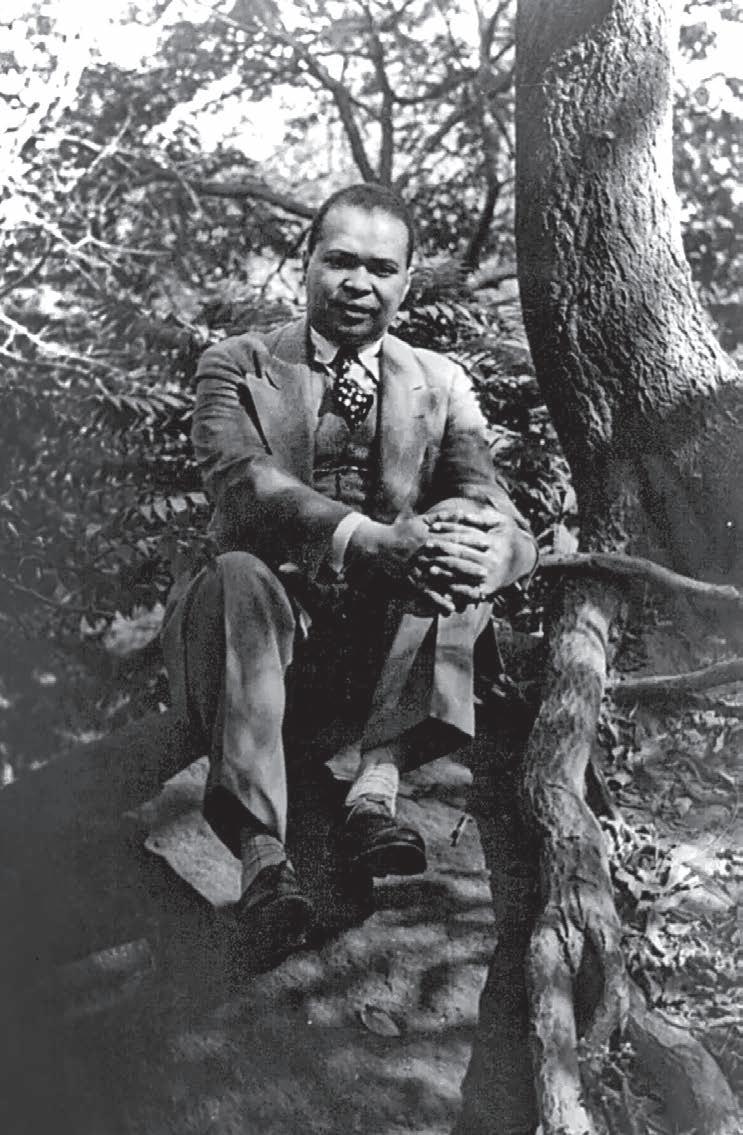
The works he published afterward never garnered the same adulation, or even attention, as his prior materials — not even “The Black Christ.” Eventually, he remarried and taught high school English in Harlem. One of his students was James Baldwin, whom he mentored.
In 1950, Countée’s widow, Ida Cullen, established the Countée Cullen Foundation and worked to promote his legacy, spending decades traveling the country. She was instrumental in getting the 135th Street branch library renamed for Countée in 1951. It was the first New York Public
Library branch to be named after an African American, according to the NYC LGBT Historic Sites Project.
In 1953, Ida married Robert L. Cooper, an NYC psychiatric social worker whose primary career focus was on troubled youth. Countée’s headstone shows two people. One side bears his name, dates, and the inscription, “Poet, Author, Scholar.”
Curiously, the second person on the headstone is Robert L. Cooper, 1909–1966, “Humanitarian, Scholar, Lecturer.” Ida died in 1986 at the age of 86.
16 COLUMNIST FEBRUARY 23, 2024 THEGEORGIAVOICE.COM
REELING IN THE YEARS MARÍA HELENA DOLAN
Countée Cullen HISTORICAL PHOTO VIA BRITANNICA.COM
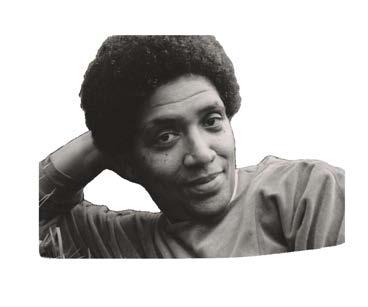






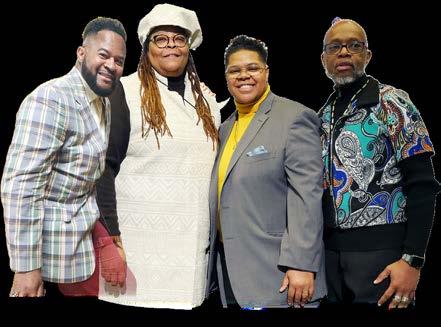
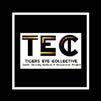







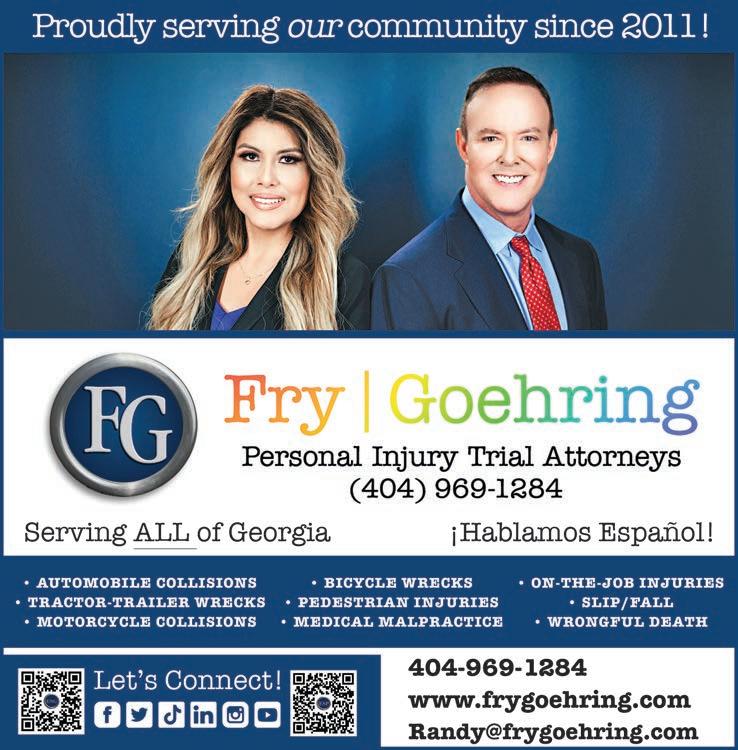
THEGEORGIAVOICE.COM FEBRUARY 23, 2024 ADS 17
Cabbage Patch Offers Families an All-Ages Drag Show
Cabbage Patch is a local drag show for all ages, one of the only local places where young kids can experience the colorful and exciting magic of drag through ageappropriate storytelling.
The show recently held its first performance at its new home at Charis Books & More, which packed the space with excited families and attendees of all ages.
“We had a phenomenal, sold-out first show,” show creator Aries ALXNDR told Georgia Voice. “We performed across the entire store.”
Located in Decatur, Charis is one of the only independent, feminist bookstores in the South.
“It was great, and everybody was close and could all see the show,” recurring cast member Hannibal Montannibal said. “The kids sat in the performance space, so they were right next to us, and we could interact. A lot of them were dancing and singing along; that was cute to see! The bookstore itself is a great atmosphere because kids can go look at books if they get antsy during the show.”
Cabbage Patch started in 2019, taking place at various venues, including Georgia Beer Garden and Wild Heaven.
While some Cabbage Patch shows have featured book readings or “storytimes,” most shows center around energetic lipsync numbers.
“The goal is to do something fun,” Aries said. “I do lots of boy bands like One Direction, and I’ve done Baloo the Bear from ‘Jungle Book.’ Performer Hera Kane did an ‘Encanto’ number, while Yutoya Avaze Leon has done
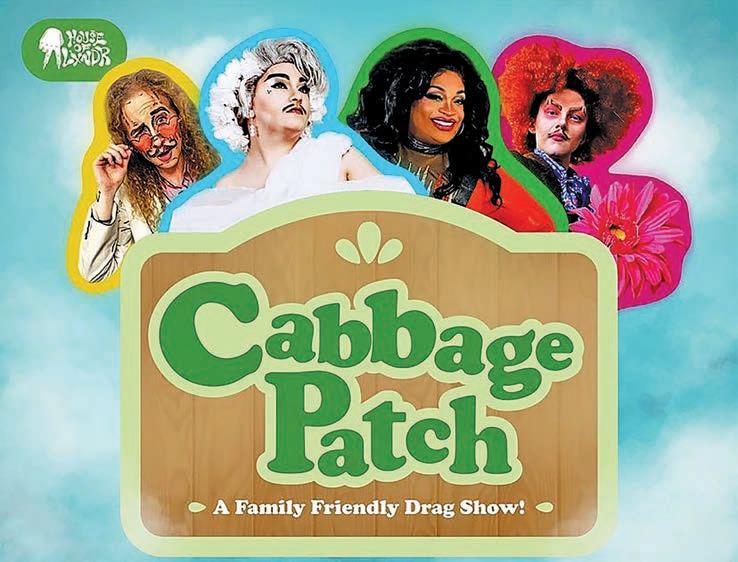
Hillary Diff and ‘Hairspray’ numbers. Boy Howdy did ‘You’ve Got a Friend in Me’ and has made stuffed animals and given them to the kids. Hannibal has done ‘I Feel Like Dancing’ before and gone into the audience to get the kids dancing.”
Creating performances children can enjoy is about a lot more than just excluding lude language and inappropriate themes; it’s about telling relatable stories and presenting fun characters with music that speaks to kids.
“It's the cutest and most heartwarming feeling I've ever had performing any time I perform at Cabbage Patch,” Hannibal said. “Last show, I performed ‘Good Tonight’ from the animated movie called ‘The Bad Guys.’ I generally try to choose songs that I enjoyed in childhood, like ‘Camp Rock’esque, Disney Channel original movies.”
An average Cabbage Patch audience consists of families with kids — most elementary age — but several adults without kids also come out to support daytime drag, which Aries points out can be rare. Some attendees have come to several shows over the years.
“I love seeing familiar faces,” Hannibal said. “It’s encouraging that they have such a good time that they wanna come back. Last year, I did a number where I dressed up in an outfit covered in Googly-eyed toy worms on a string. The song was called ‘Earworm.’ I would play a popular kids' song at the instrumental break, like ‘Let It Go,’ ‘What Did the Fox Say,’ and ‘Baby Shark.’ The parents thought it was hilarious. I had extras and gave them out to kids as I was performing. By the end, all the kids wanted to come thank me, and some kids have brought it up at shows since then.”
“It brings me so much joy to see children having a good time. One time, somebody messaged me saying, ‘My kid is at home trying on their clothes deciding what they could be as a drag king.’ Kids deserve a chance to see themselves and others reflected on a stage. Cabbage Patch gives kids a safe place to feel joy and feel creative, and I hope we can do that for a long time.”
—Cabbage Patch show creator, Aries ALXNDR
The Cabbage Patch cast changes and has featured Atlanta drag artists like Mr Elle Aye, Taylor ALXNDR, Dotte Com, and Miss He.
“It brings me so much joy to see children having a good time,” Aries said. “One time, somebody messaged me saying, ‘My kid is at home trying on their clothes deciding what they could be as a drag king.’ Kids deserve a chance to see themselves and others reflected on a stage. Cabbage Patch gives kids a safe place to feel joy and feel creative, and I hope we can do that for a long time.”
The next Cabbage Patch show is April 28. You can follow the show on Instagram @ cabbagepatchatl. Aries and Hannibal also join Mr Elle Aye as the main cast of Manhole, Atlanta’s only recurring drag king show. To learn more about Charis, visit charisbooksandmore.com.
18 CULTURE FEBRUARY 23, 2024 THEGEORGIAVOICE.COM CULTURE
Luke Gardner
The next Cabbage Patch show is April 28. IMAGE VIA INSTAGRAM

‘Furlough’s Paradise’ and ‘Everybody’s Talking About Jamie’ Feature Rich LGBTQ Characters

Two new ATL shows feature LGBTQ characters prominently. The world premiere drama, “Furlough’s Paradise,” by playwright A.K. Payne, has just premiered at the Alliance Theatre. It’s part of the Alliance/Kendeda National Graduate Playwriting Competition, now in its 20th year.
“Paradise” is a two-character drama looking at the lives of cousins Sade (Kai Heath) and Mina (Asha Basha Duniani). They grew up on the same street and were once very close, but their lives went on different paths after middle school when Mina attended a charter school and Sade went to a public school. When the mother of one passes away and the women return home for the funeral, they attempt to reunite.
Sade is now in prison, furloughed for three days, and Mina is an Ivy League graduate with a job in California. Both talk about their female partners and much more over their three days together. Sade is a bit
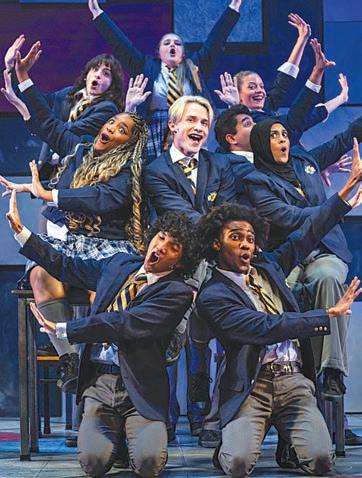

surprised by some of the revelations Mina shares about her current girlfriend.
Payne’s play is observant and gives both characters nuance and dimension. Throughout the 80-minute work, the two dive into where they are now, but also what led to this point. “Paradise” is directed with energy and passion by Tinashe Kajese-Bolden, also Alliance’s artistic director. Even when it takes on a surreal feel, the goings-on are believable.
My only slight criticism is that after so much time apart, the reunion of the duo seems to take place rather too quickly. There is much pain and baggage behind their bond that comes out — eventually.
Both performers are excellent; even when the two are rehashing what drove them apart, there is palpable compassion and respect for each other. It helps that the play is so well written. It will be interesting to see where “Paradise” heads from here and what tweaks Payne can make to an already solid work.
Actor’s Express has just opened the acclaimed musical, “Everybody’s Talking About Jamie,” about a teenager who dreams of becoming a drag queen. Noah Vega plays the titular character with Shashi Yammada, Jill Hames
and Shelli Delgado bringing other roles to life. Georgia Voice recently caught up with the company’s artistic director, Freddie Ashley, who is also directing the show, to talk about his attraction to the work.
What made you want to stage the musical?
I’ve been a fan of the show since I first saw the London production in a cinema broadcast by National Theatre Live and I thought it was great. I saw the movie when it screened [locally] a couple of years ago. Matt Huff, who directs theater at Oglethorpe, and I were talking about possible shows to collaborate on for this year, and he asked if I had ever thought about “Everybody’s Talking About Jamie.” I said, “I love that show but I can’t imagine we can get the rights to it yet because I thought it was going to play Broadway.” He said it was on Concord Theatrical’s website, so I contacted our rep there and one thing led to another and we got the rights. It was a no-brainer.
What do you like about it?
A lot. I love the music. It is upbeat, fun, and heartfelt. I love that it is a story that avoids familiar tropes. This is a story about a queer kid trying to express himself and be accepted, but he is the hero of the story. He has a mother who is very supportive and a
best friend who is very supportive. It’s not about the internal struggle to come out or his victimhood. While there are obstacles that he faces and discrimination he faces, I think it’s told through a lens of triumph and victory that is irresistible.
What all is Jamie dealing with?
He is a boy in Sheffield, England, a workingclass city in Northern England. We meet him on his 16th birthday, and he wants to be a drag queen. His mom knows it, as does his mom’s best friend. He starts to run into trouble at school. He has a very strict teacher who wants him to conform and not cause distractions to the other students. She gives him a pretty rough time. He has a father who is absent, and his mom has been covering for the dad because she doesn’t want Jamie to know he wants nothing to do with him. She has been sending birthday cards for the father to carry on this lie that Jamie has a father who cares about him. He is mentored by an older drag queen who has given up but is inspired by Jamie and his optimism.
It’s a scary time now with so many antiLGBTQ/anti-drag laws. Did that have an effect on wanting to do this now?
That is one of the reasons we wanted to do this this time of year. It’s very important for me to be running during the time the General Assembly is in session. I don’t know if there are going to be any horrible anti-drag or antLGBTQ laws debated this session, but given the track record of some of our neighboring Southern states and other states around the country I think it is a possibility. I wanted this show to be out there staking its claim.
MORE INFO
“Furlough’s Paradise” runs through March 3 at the Alliance Hertz Stage
“Everybody’s Talking About Jamie” runs through March 3 at Oglethorpe University
20 COLUMNIST FEBRUARY 23, 2024 THEGEORGIAVOICE.COM
Jim Farmer
JIM FARMER ACTING OUT
“Furlough’s Paradise” SCREENSHOT FROM PROMO VIDEO
“Everybody’s Talking About Jamie” PHOTO VIA FACEBOOK



THEGEORGIAVOICE.COM FEBRUARY 23, 2024 ADS 21
Katie Burkholder
Southeast Black and Blue Weekend
FEBRUARY 23-25
ATLANTA EAGLE
SEBB kicks off Friday night with a drag show, dancing, and meet and greet before a weekend of workshops and presentations all dedicated to leather and kink! Register at sebbevents.com
RuPaul’s Drag Race Viewing Party
FEBRUARY 23, 8PM
ATLANTA EAGLE
Watch the season 16 queens battle for the crown!
Myah Ross Monroe’s House of Love
FEBRUARY 23, 9PM
ATLANTA EAGLE
Featuring Just Jermaine, Malaysia Black, Lacie Bruce, Tatiana Tuesday Dickerson, A’Jivan Avionce Dickerson, Chavon Scott, and Jeremiah Tymes Starr. $5 cover.
Le Youth and EMBRZ: About Us Tour
FEBRUARY 23, 10PM
DISTRICT ATLANTA
Tickets at leyouth.com
XION
FEBRUARY 24, 3AM
FUTURE ATLANTA
With Karlitos. Tickets at future-atlanta.com
Mr Charlie Brown’s XXX Rated Cougars
FEBRUARY 24, 9PM
ATLANTA EAGLE
Featuring Niesha Dupree, Misti Shores, Lena Lust, and co-host Shawnna Brooks. $5 cover.
Sapphira Cristál from RuPaul’s Drag Race
FEBRUARY 24, 10PM
MY SISTER’S ROOM
Season 16 queen Sapphira Cristál headlines, with Drew Friday, EllaSaurus Rex, Ivy, Michael Robinson, Tuna Fiasco, and more! Tickets at wussymag.com
Zaddy Haus
FEBRUARY 24, 11PM
ATLANTA EAGLE
Featuring Chris Kind and iCharlie. $5 cover.
XION
FEBRUARY 25, 3AM
BELIEVE MUSIC HALL
With Twisted Dee. Tickets at future-atlanta.com
LET’S EAT! A Queer Community Potluck
FEBRUARY 25, 2PM
NEIGHBORHOOD CHURCH
Come enjoy food, community, and socializing with Southern Fried Queer Pride! Reserve your spot for free at sfqp.info/letseat128
Sunday T-Dance
FEBRUARY 25, 4PM
ATLANTA EAGLE
With music by Rob Reum and a beer and margarita bust!
Karaoke Night
FEBRUARY 25, 7:30PM
THE T
Shameless Sundays
FEBRUARY 25, 11:55PM
FUTURE ATLANTA
Hosted by Krya Mora and Tristan Panucci with


EVENT SPOTLIGHT
Sapphira Cristál from RuPaul’s Drag Race
FEBRUARY 24, 10PM
MY SISTER’S ROOM
Season 16 queen Sapphira Cristál headlines, with Drew Friday, EllaSaurus Rex, Ivy, Michael Robinson, Tuna Fiasco, and more! Tickets at wussymag.com.
DJ Justin Facee. Tickets at future-atlanta.com.
Country Night
FEBRUARY 27, 8PM
ATLANTA EAGLE
Swing by for the line dance lesson at 8pm before dancing the night away with DJ Dice at 9pm!
Atlanta All Stars Finale
FEBRUARY 27, 8:30PM
FUTURE ATLANTA
See who takes home the $10,000 prize! Tickets at future-atlanta.com
Trivia Night
FEBRUARY 27, 8:30PM
ATLANTA EAGLE
With DJ DeWayne.
Late Nite Latin Tuesdays
FEBRUARY 28, 3AM
FUTURE ATLANTA
With DJ Karlitos. $5 cover.
Figure Drawing
FEBRUARY 28, 7PM
THE BAKERY’S SOUTH DOWNTOWN ART GALLERY
Join The Bakery for their monthly figure drawing session! Bring your own supplies. Tickets at thebakeryatlanta.square.site
CONTINUES ON PAGE 23

22 LGBTQ NIGHTLIFE FORECAST FEBRUARY 23, 2024 THEGEORGIAVOICE.COM
LGBTQ NIGHTLIFE FORECAST FEBRUARY 23-MARCH 8
Photo via Facebook
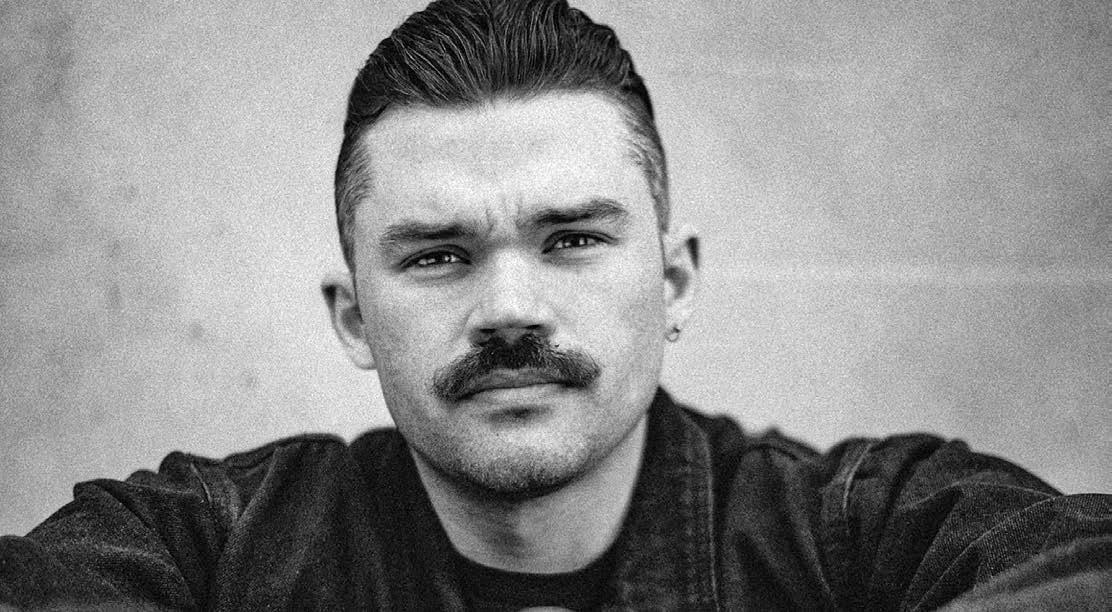
EVENT SPOTLIGHT
Dom Dolla
MARCH 8, 10PM
DISTRICT ATLANTA
Tickets at collectivpresents.com. Photo via Facebook
CONTINUED FROM PAGE 22
Karaoke Night
FEBRUARY 29, 9PM
THE T
Rock Haus Karaoke
FEBRUARY 29, 9PM
ATLANTA EAGLE
Hosted by Raqi.
RuPaul’s
Drag Race Viewing Party
MARCH 1, 8PM
ATLANTA EAGLE
Watch the season 16 queens battle for the crown!
Myah Ross Monroe’s
House of Love
MARCH 1, 9PM
ATLANTA EAGLE
Featuring Just Jermaine, Malaysia Black, Lacie Bruce, Tatiana Tuesday Dickerson, A’Jivan Avionce Dickerson, Chavon Scott, and Jeremiah Tymes Starr. $5 cover.
Joris Voorn
MARCH 1, 10PM
DISTRICT ATLANTA
With JD Farrell and Johnny K. Tickets at collectivpresents.com.
Paws and Play
MARCH 1, 10PM
ATLANTA EAGLE
Presented by Onyx Southeast. Gear encouraged! $5 cover.
Mr Charlie Brown’s XXX Rated Cougars
MARCH 2, 9PM
ATLANTA EAGLE
Featuring Niesha Dupree, Misti Shores, Lena Lust, and co-host Shawnna Brooks. $5 cover.
Hot Mess: A Dance Pop Party
MARCH 2, 10PM
THE BASEMENT
For pop lovers, this is the only night out in Atlanta where you’ll hear an expertly curated mix of the biggest and latest pop and dance music! Ticket at basementatl.com
Queer Figure Drawing
MARCH 3, 2PM
CREATEATL
Bring a sketch pad and pencils and enjoy drawing with community! Reserve your spot for free at sfqp.info/figure
Karaoke Night
MARCH 3, 7:30PM
THE T
Trivia Night
MARCH 5, 8:30PM
ATLANTA EAGLE
With DJ DeWayne.
Karaoke Night
MARCH 7, 9PM
THE T
Rock Haus Karaoke
MARCH 7, 9PM
ATLANTA EAGLE
Hosted by Raqi.
Dom Dolla
MARCH 8, 10PM
DISTRICT ATLANTA
Tickets at collectivpresents.com
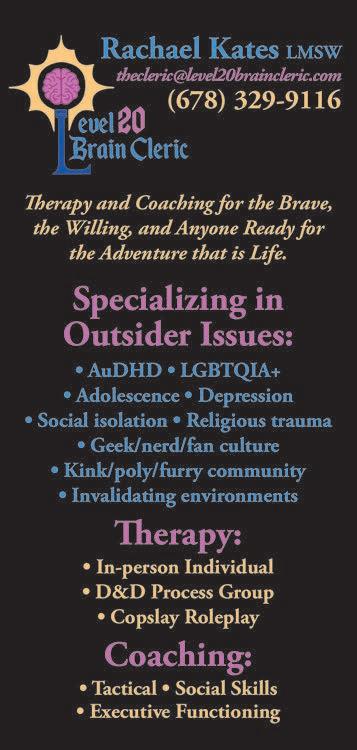

LGBTQ NIGHTLIFE FORECAST FEBRUARY 23-MARCH 8 THEGEORGIAVOICE.COM FEBRUARY 23, 2024 LGBTQ NIGHTLIFE FORECAST 23
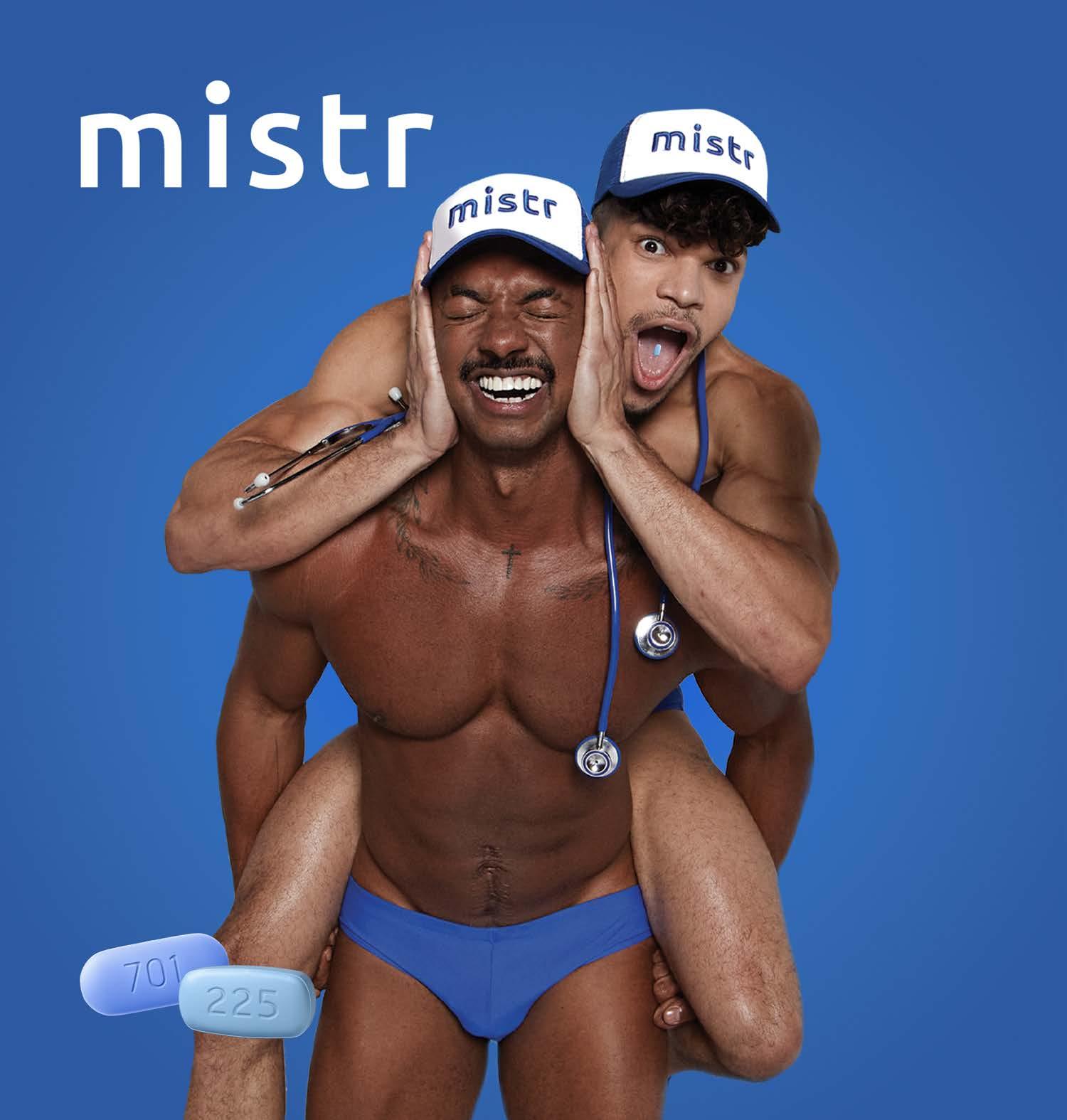




 Katie Burkholder
Katie Burkholder


 PHOTO BY SHUTTERSTOCK.COM/ALESSANDROBIASCIOLI
PHOTO BY SHUTTERSTOCK.COM/ALESSANDROBIASCIOLI
 PHOTO BY SHUTTERSTOCK.COM/ CUNAPLUS
PHOTO BY SHUTTERSTOCK.COM/ CUNAPLUS




















 María Helena Dolan
María Helena Dolan

































